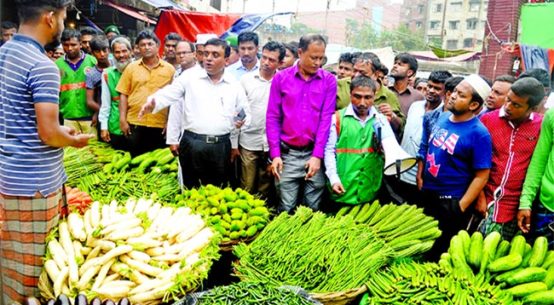
The government of Bangladesh, like those of many other countries, announced huge financial incentives to recover businesses hurt by the novel coronavirus pandemic. But a large section of small and medium entrepreneurs have been deprived of it, due to lack of a proper distribution system. According to a recent study conducted by a private research firm, SANEM, 79 per cent of the country’s businesses did not receive the money from the incentive package announced by the government. In addition, there were allegations of claiming bribes to get the allocated funds. Nobel laureate economist Amartya Sen once said in a speech that famine does not occur due to lack of food but due to lack of distribution. The saying is also relevant in the distribution of incentive packages announced by the government to revive the economy, because distribution management and systemic weakness worked here starkly. However, the issue of fair distribution of government funds is the most important to overcome the economic losses caused by the pandemic.
All the entrepreneurs and businessmen of the country, big and small, are more or less affected by the impact of the pandemic. Thanks to having a large capital, bigger entrepreneurs can easily cope with the crisis, but small capital makes it difficult for small entrepreneurs to overcome the stress. The same has happened in the existing situation created by the Covid. As a result, they need more loans or incentives. But most of the government’s incentive packages have been received by big entrepreneurs. Banks are also biased towards bigger firms. Meanwhile, many small traders do not have a bank account even though they were asked to receive the incentives through banks. Again, many are unaware of the incentives. Moreover, bank and customer relations often become important here. There are also complications with getting a loan due to various conditions.
In a country with a huge workforce like Bangladesh, small and medium enterprises have an important role to play in reducing unemployment and alleviating poverty. Many experts believe that, with the necessary patronage, the industry will be able to contribute much more to the gross domestic product. The government’s efforts to save lives and livelihoods have been visible since the beginning of the pandemic. There was no lack of initiatives on the part of the government. The central bank has also stepped up its oversight of the implementation of the incentive package. But the big problem is that the government does not have a complete list of these traders. Many have been forced to close their businesses due to the financial crisis. Irregularities have also been seen in the new lists. In this case, the business organisations themselves can enlist the affected firms and provide it to the government. There is no alternative to formulating effective policies and recommendations on how the small and medium enterprises can turn around in the post-Covid period. Incentive money should not be misused in any way; the real victims should get the benefits and the distribution of loan should be monitored regularly to ensure its fair and proper utilisation. The SANEM study highlights the lack of transparency in package implementation, which needs to be addressed. Inequality in society will increase if the government’s financial assistance is not properly implemented. Since the Covid crisis is unlikely to end any time soon, different strategies will have to be devised to adapt to the changed situation. It is important to set the strategy of economic recovery with the participation of both the public and the private sectors.


